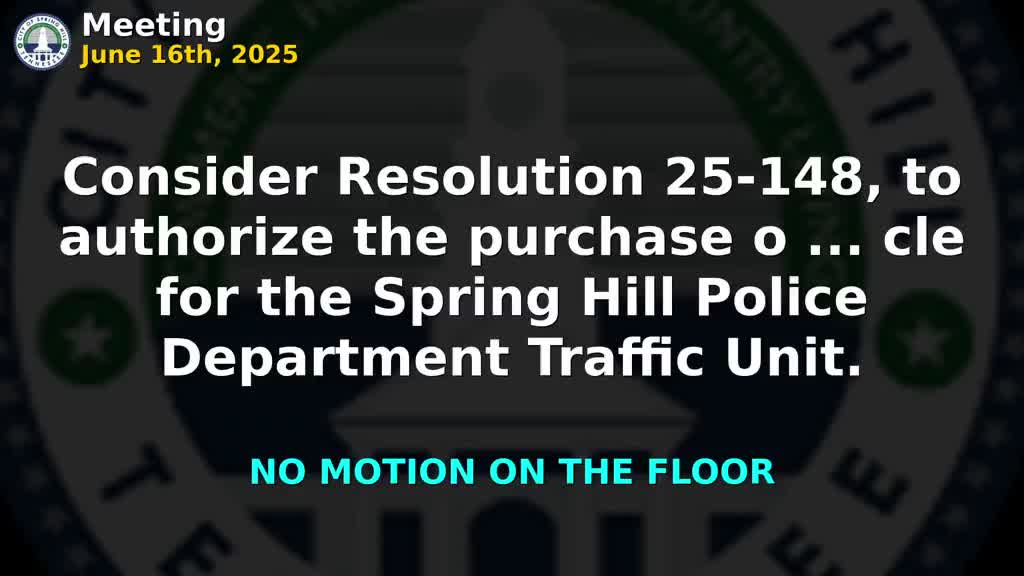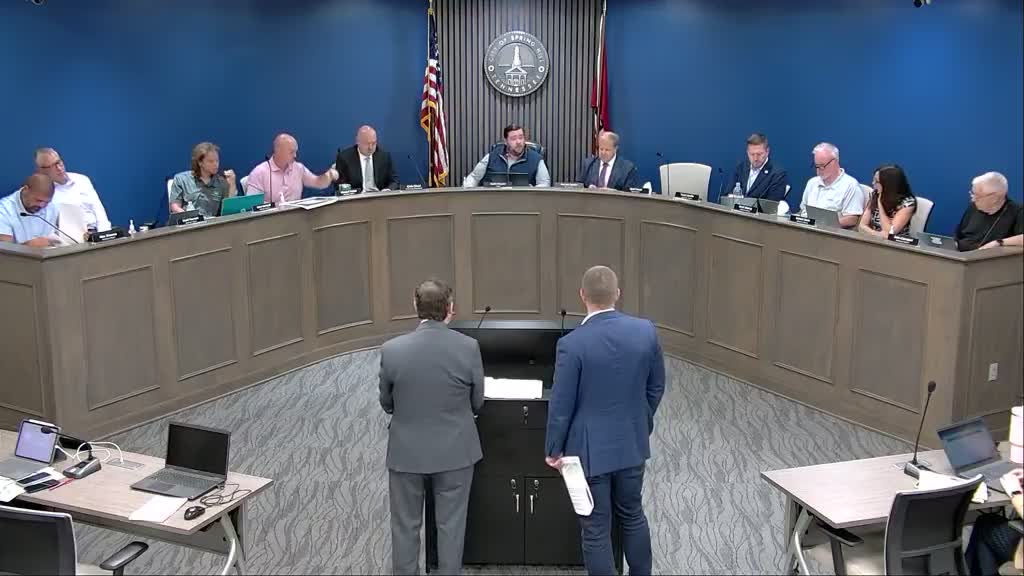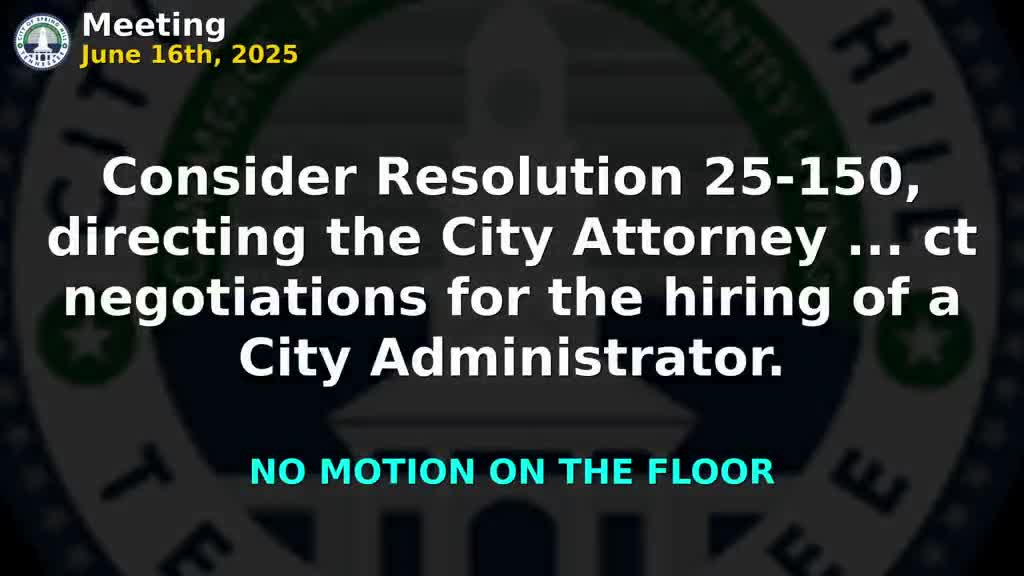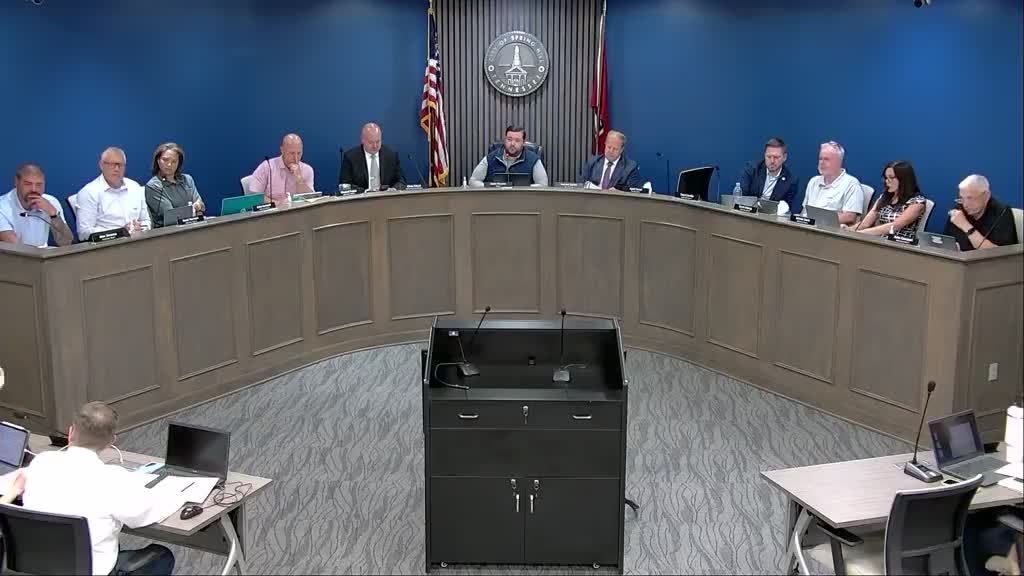Article not found
This article is no longer available. But don't worry—we've gathered other articles that discuss the same topic.

Board approves ordinances, resolutions and consent items; summary of votes

Developer offers $2 million participation for Kidron Road improvements tied to Reagan Ridge subdivision

Board directs city attorney to negotiate contract for Jay Carter Napier as city administrator after finalist interviews

